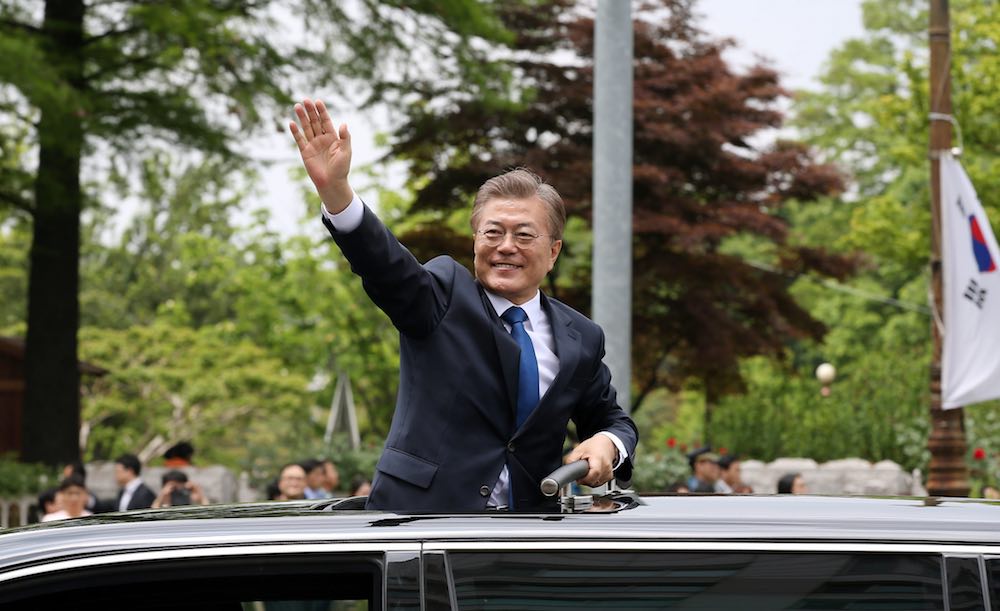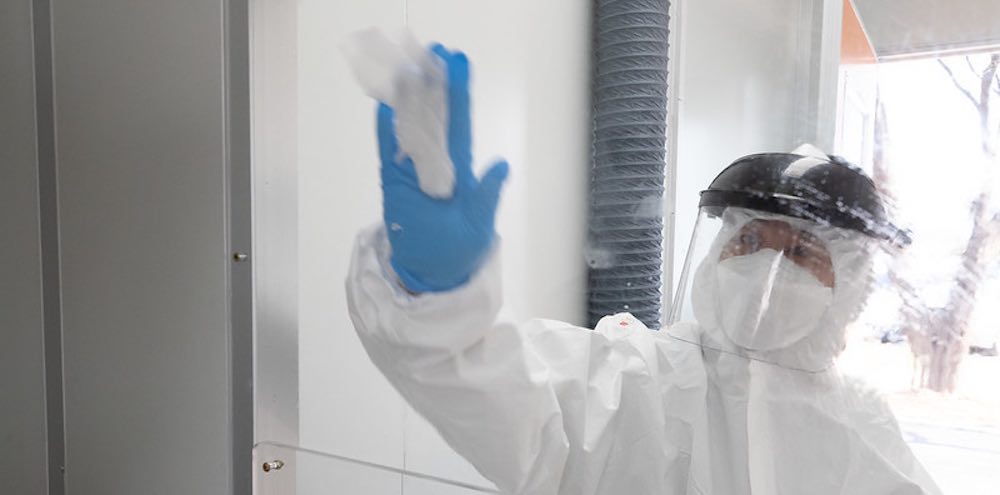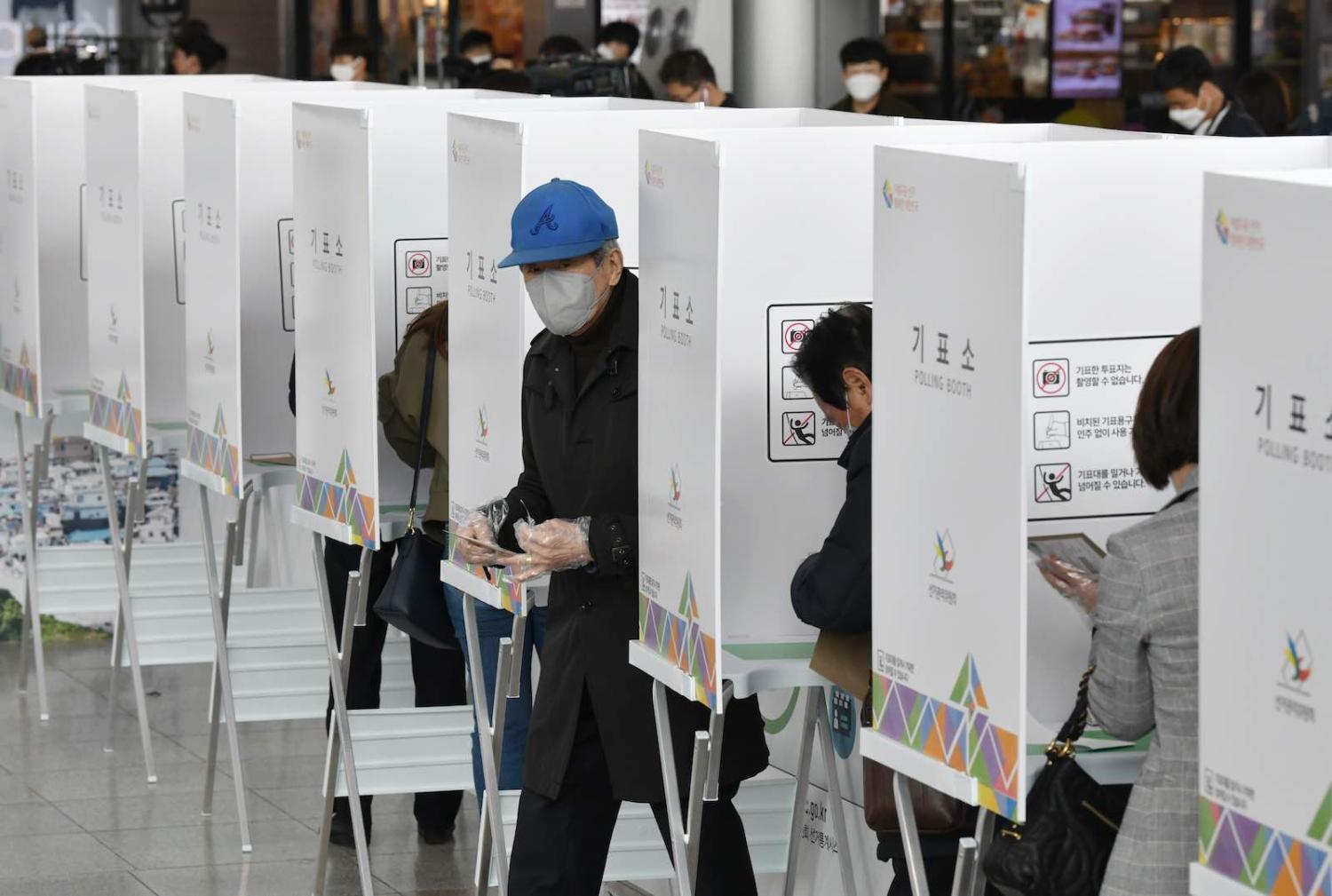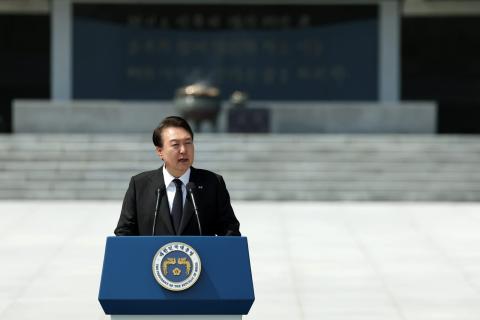On Wednesday 15 April, South Korea will hold legislative elections. South Korea’s parliament, the National Assembly, is elected every four* years. Composed of 300 members, it has 253 single-member district seats and 47 proportional representation seats.
The Landscape
The left currently holds a slim majority, but the distribution of power is fluid. South Korea’s political party landscape is fragmented. Fifty-one parties are running for office in this election. Most of them are minor, of course, but the proportional representation seats are a constant temptation for the formation of off-shoot and splinter parties. There are enough proportional representation seats to inhibit the “natural” outcome of Duverger’s Law: South Korea has a rough two-party system, but it has never durably congealed. Small parties continue to crop up and get elected.
Further, those parties in the legislature do not cooperate especially well. South Korea’s leftist president, Moon Jae-in, has not been able to rely on a firm center-left coalition. As in typical in presidential systems, where the legislature is elected independently of the executive, legislators are loath to simply line up behind the executive as in a parliamentary system. The South Korean left is traditionally fractious.

A splintering of the South Korean right has added yet more alignment problems. Normally more disciplined, the right-wing bloc shattered over the impeachment of South Korea’s previous president, Park Geun-Hye. Park, a conservative, remains a divisive topic. Dead-enders refuse to accept her removal as constitutionally proper – a common theme in far-right discourse here is that she was pushed out in a semi-coup. The main right-wing party has changed its name for the fourth time in 10 years in an effort to move on from Park.
The upshot is that both right and left are fractured. Each side has one large-ish party aspiring, and failing, to be a big-tent party – the Democratic Party on the left, and United Future Party on the right. Scattered around them are splinter parties who refuse to formally adjoin to the aspiring big tent leader. These dynamics do not appear to be changing in this election. Moon will likely not emerge with a clear, coherent bloc at his back, but will also likely not face a united opposition.
The “corona election”
The big issue of the election is obviously coronavirus, but not as much as you would think, thankfully. And here is a lesson for other democracies as they struggle to reconcile Covid-19 with elections: if you can get your outbreak under control – South Korea has been a world leader in this – it need not take over the entire political agenda, nor need it make the physical act of voting treacherous.
Here the world’s oldest democracy particularly has a lot to learn. This is a presidential election year in the US. There are both primary elections in the spring and a general election in the autumn months. There is a wide-ranging debate in the US now about how to conduct those elections. Should they be postposed? Is that even legal? Should citizens vote by mail to avoid standing in line and contaminating each other? Because the US has responded so poorly to the virus, Covid-19 is now overwhelming the voting process itself.
It is also clear in the US that coronavirus will be the dominant issue of the campaign. US President Donald Trump will be measured by how this unfolds, particularly by the state of economy in the latter months of the year, the duration of the lock-downs, and continuing fatalities. The sluggish US response elevated Covid-19, and the response to it, to the foremost political issue of the election.
South Korea – quite impressively, it must be said – forestalled both of these outcomes. There is nothing at all here like the debacle in the US state Wisconsin, where the US Supreme Court refused to permit overdue mail-in ballots, forcing voters to wait in line to vote and violate social distancing rules. And while it will obviously be the “corona election” in South Korea too, other issues have received attention, too. Normal concerns, such as the economy or North Korea, have not been completely driven from the media debate.

The outcome
The polls have given Moon’s Democrats a pretty solid lead. This is almost certainly because of the superb response to the virus. South Korea’s daily new case load is now below 50. One can already see widespread signs of de-constriction. My son’s kindergarten has re-opened. High schools are scheduled to re-open this week and universities by the end of the month. Compared to the rest of the world, especially the US, this is simply remarkable. Moon deserves enormous credit for this, and it will likely power a leftist victory.
There is a political or ideological problem here though. A vigorous response to coronavirus is not a policy proposal in the traditional sense, so the Democrats’ likely win will tell us little about what they will do. The answer is almost certainly a continuation of Moon’s previous policies – an expansion of the welfare state, more social spending, and most importantly, continued outreach to North Korea. But this is not really what the voters are voting for in affirming Moon’s excellent handling of the outbreak.
Another missing referendum on North Korea detente
North Korea policy strikes me as particularly troublesome in this regard. This will be second election involving Moon where North Korea is scarcely an issue, even though it has come to dominate Moon’s presidency. Moon has also balked at sending his various joint statements with North Korean leader Kim Jong-un to the National Assembly for any kind of vote. (Moon’s administration has argued that these are not treaties and therefore are exempt.)
My own hope had been that his election would be a referendum on North Korea détente. 2017 was not that, as Moon scarcely mentioned it, nor has the National Assembly been given a chance to vote on anything regarding the policy. And now coronavirus will again change the subject.
This is slippery. Moon won election in 2017 on the back of popular disgust with the right over the Park impeachment. Unsurprisingly, Moon campaigned back then on transparency, accountability, inequality, strengthening democracy, and so on. And while he has pursued a fairly standard social democratic economic line at home, he also initiated a wide-ranging détente with North Korea, far deeper than anything tried by his predecessors. Moon did not campaign on this, and this outreach has been, unsurprisingly, hugely controversial. Worse, Moon has not solicited South Korean right about this in any serious way, and the result has been sharp polarisation. Conspiracy theories are rampant on the right here that Moon is a Marxist in league with Kim Jong-un.
My own hope had been that his election would be a referendum on North Korea détente. 2017 was not that, as Moon scarcely mentioned it, nor has the National Assembly been given a chance to vote on anything regarding the policy. And now coronavirus will again change the subject.
There will still be no definitive vote on whether the country really wants this controversial course. This was entirely unpredictable of course. But it remains an obvious disjuncture that the most important and controversial Moon policy project has never been exposed to a proper vote.
* An earlier version mistakenly said five year terms, rather than four for the legislature.

